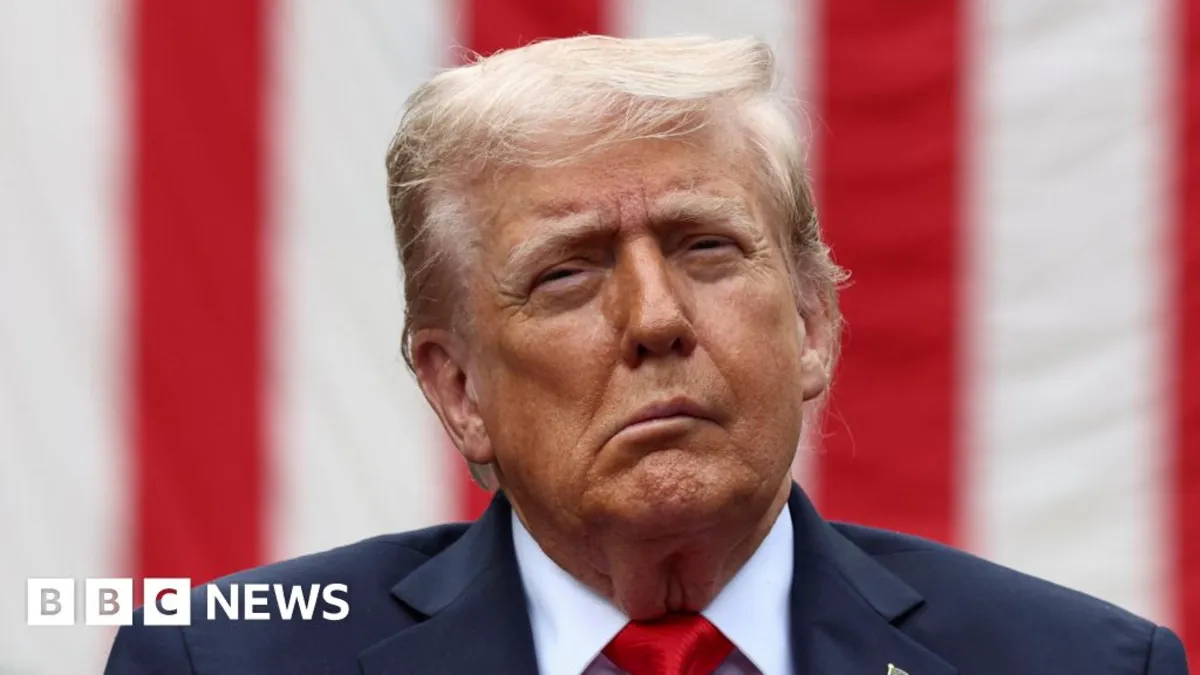
In a recent statement, US President Donald Trump expressed his readiness to impose tougher sanctions on Russia, contingent upon certain conditions being met by NATO countries. A significant aspect of his proposal is the cessation of Russian oil purchases by these nations. This announcement was made via his social media platform, Truth Social, where he emphasized that he would implement major sanctions once NATO allies agree and take collective action.
Despite his consistent threats of tougher measures against Moscow, Trump has yet to act decisively while the Kremlin continues to disregard his deadlines and warnings regarding sanctions. He described the ongoing purchases of Russian oil by some NATO members as "shocking," arguing that such transactions severely undermine the alliance's negotiating position and bargaining power with Russia. In a letter addressed to NATO nations, Trump urged them to coordinate their efforts, stating, "I am ready to 'go' when you are. Just say when?"
Trump's comments highlight the challenges faced by NATO in reducing its reliance on Russian energy. He suggested that implementing tariffs ranging from 50% to 100% on China would further weaken its influence over Russia. According to Trump, halting Russian energy purchases, coupled with significant tariffs on Chinese goods, would be instrumental in resolving the ongoing conflict in Ukraine. Since the onset of Moscow's full-scale invasion, European reliance on Russian energy has significantly decreased, dropping from approximately 45% in 2022 to an estimated 13% this year. However, Trump believes this reduction is insufficient.
Trump's statements come amid escalating tensions between NATO allies and Russia, particularly following an incident where more than a dozen Russian drones entered Polish airspace. While Warsaw characterized the incursion as deliberate, Moscow downplayed the situation, asserting it had no intentions of targeting facilities in Poland. In response to these tensions, Denmark, France, and Germany have joined a new NATO mission aimed at strengthening the alliance's eastern flank by relocating military assets eastward.
Ukrainian President Volodymyr Zelensky has echoed Trump's concerns regarding the purchase of Russian oil and gas. In a recent interview with ABC News, Zelensky insisted, "We have to stop buying any kind of energy from Russia, and by the way, anything, any deals with Russia. We can't have any deals if we want to stop them." Since 2022, European countries have reportedly spent around €210 billion (£182 billion) on Russian energy, a significant portion of which has financed the invasion of Ukraine. The EU has committed to phasing out these purchases by 2028, but the US is advocating for a more accelerated timeline, aiming to replace Russian supplies with alternatives.
Trump's message was directed primarily at NATO, which includes countries like Turkey, a significant buyer of Russian oil that has maintained closer ties with Moscow than other alliance members. Convincing Ankara to cut off its Russian energy supplies presents a complex challenge. Trump's most recent threats of increased sanctions emerged earlier in September, following a wave of intense bombardment by Russia in Ukraine. When asked by reporters if he was prepared to escalate punitive measures against Moscow, Trump affirmed, "Yeah, I am," although he did not provide specifics.
Previously, the US imposed tariffs of 50% on goods from India, including a 25% penalty for transactions with Russia, which are crucial funding sources for the ongoing conflict in Ukraine. As the situation evolves, the international community continues to monitor the implications of Trump's proposed sanctions and the collective response from NATO nations.